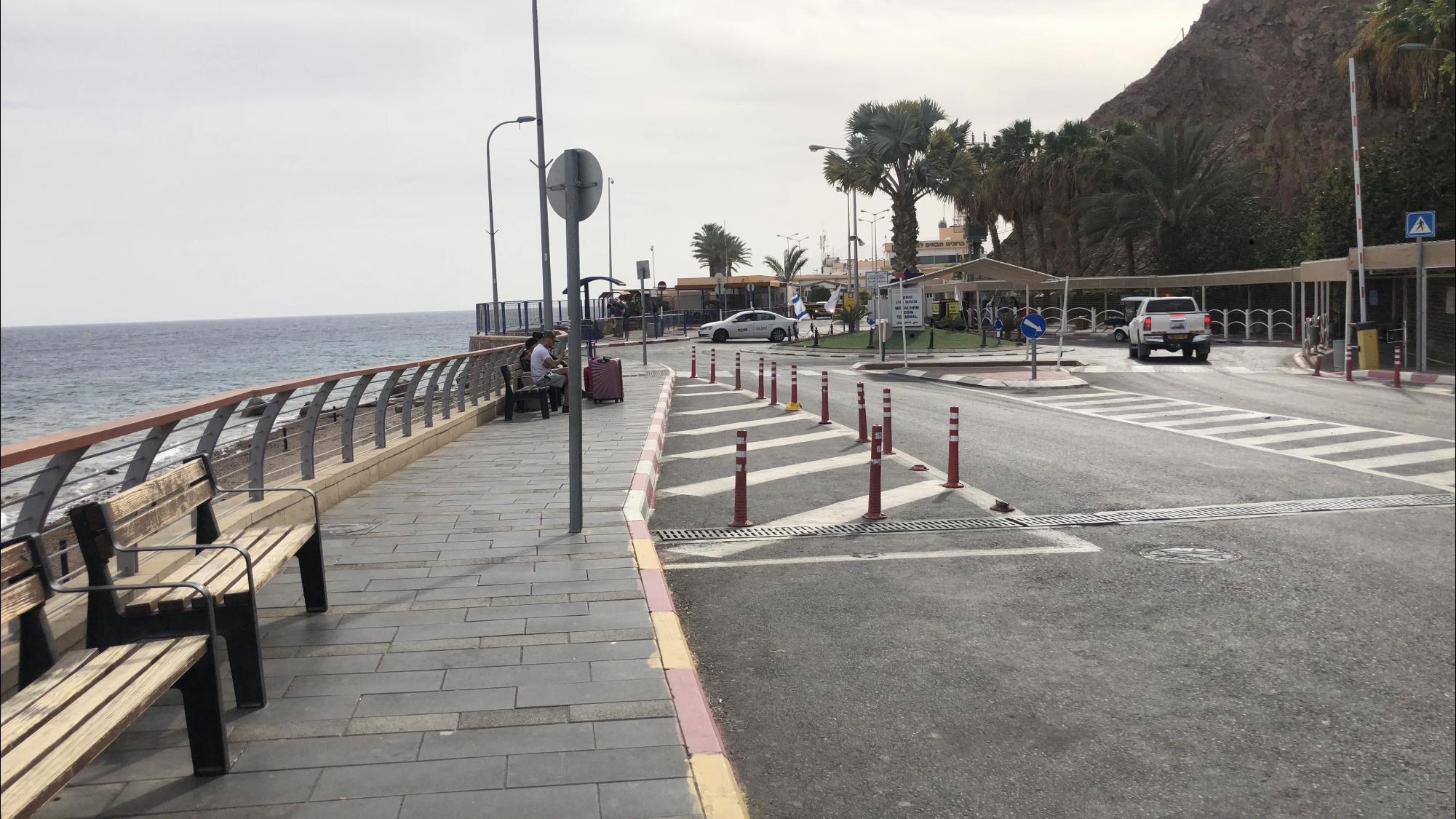Coronavirus: As pandemic forces countries to close borders, travel continues
The Man Who Pays His Way: this shadowy new era is full of barriers

Hitch-hiking, you may be surprised to learn, still works despite the growing fears about coronavirus. I base this on my experience on Tuesday afternoon, when I successfully thumbed my way from the Israeli resort of Eilat to the Egyptian border.
The road runs beside the Gulf of Aqaba, providing a widescreen view of the kitesurfers gracefully exploiting the afternoon breeze with a backdrop of misty mountains rising from the Saudi Arabian shore.
Given that Israel had not featured anywhere in my travel plans for this week, I was surprised to find myself in the country. All the more so, given that on Monday evening the government had effectively ordered its borders closed to foreigners if they could not provide evidence of where they intended to self-isolate for two weeks in case they were carrying the coronavirus. Stragglers, though, were allowed a day or two’s grace, so long as they turned up at the crossing point from Aqaba in Jordan with the right kind of passport.
France, Germany and, of course, poor Italy were among the nations whose citizens were non grata, but the odd Brit was allowed through to continue a journey around the most geopolitically complex corner in the world.
Four nations converge at the head of the Gulf of Aqaba. From east to west: Saudi Arabia, Jordan, Israel and Egypt. Were there no barriers, you could drive through all four countries in under an hour.
That would have been ideal. I had a flight booked on Monday afternoon from the Saudi city of Tabuk to Cairo. But shortly before I headed for the airport, I found (in Arabic, in my Junk folder) an email from the airline that Google disappointedly translated as: “Due to the current situation of coronavirus and the instructions of the Saudi Civil Aviation Authority, flight NE 121 heading from Tabuk to Cairo was cancelled on March 9, 2020.”
At about the departure time of the grounded plane, I was drifting through the desert on a bus with no name, and a final destination of Haql – the last town in Saudi.
My cunning plan B was to nip around to Egypt and find a bus aiming for the capital. But there was the small matter of three heavily fortified frontiers to contend with.
Airports empty as Coronavirus affects aviation industry
Show all 11Saudi Arabia to Jordan was a warm-up. Appropriately an official took my temperature as I stepped from Mr Khalid’s taxi. “Border crossing solutions provider” would be a more appropriate title for him, given the aplomb with which he convinced the officials I presented no significant threat to the Jordanian nation.
This was also the only fee-free crossing. Jordan demands the equivalent of £15 to leave. And the Israeli-Egyptian frontier is off the red tape scale with its exhausting, dollar-draining awfulness. It really deserves a column of its own next week.
Yet at least getting there, in the company of first Yael and then Nathaniel – the Israeli drivers who stopped for me – was a joy.
“We must fight the darkness!,” exclaimed Yael as we talked about the strange new world.
We do seem to be living in a shadowy new era, full of barriers. I call it the start of the coronavirus cold war.
On one side: insularity, championed by the masked crusaders who believe that the best strategy to defeat Covid-19 is to contain the spread while scientists race to develop a vaccine. And that means separating people by nationality and building barriers between peoples.
The other side cherishes openness over locking down. Coronavirus is spreading around the globe by air, rail, road and sea travel. But dividing the world causes more harm than good, they believe: as economies implode they cannot protect vulnerable people so well. Better to stay connected and cherish the enrichment that travel brings, they argue.
The coming weeks and months will reveal which ideology prevails. Insularity is in the ascendant. But meanwhile hitch-hiking continues.
Subscribe to Independent Premium to bookmark this article
Want to bookmark your favourite articles and stories to read or reference later? Start your Independent Premium subscription today.

Join our commenting forum
Join thought-provoking conversations, follow other Independent readers and see their replies